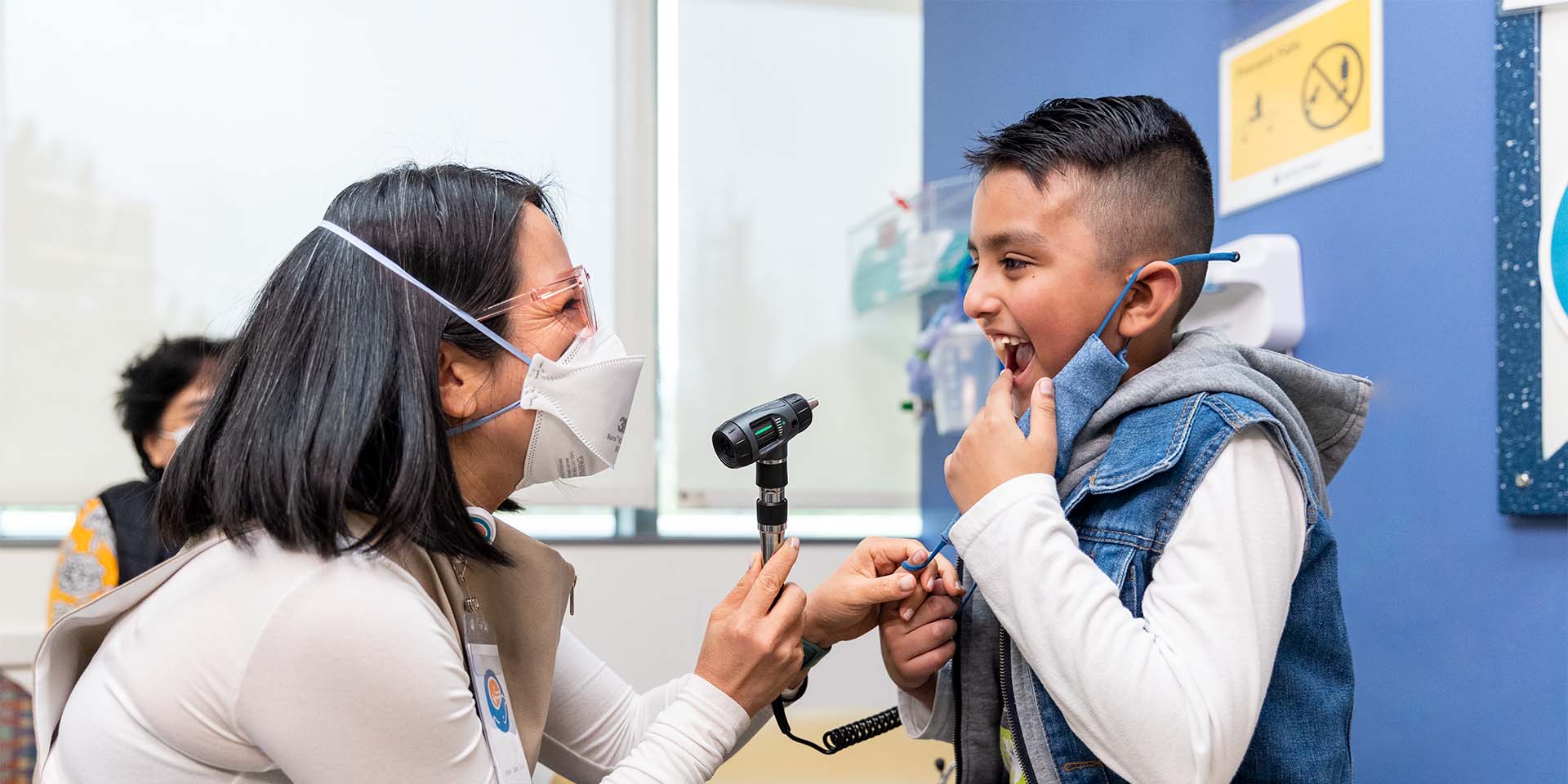
Center for Diversity and Health Equity
Since 2006, the Center for Diversity and Health Equity (CDHE) has been dedicated to reducing health disparities and improving the lives of all patients, families, research participants and the community. Our mission is to prioritize equity by advocating for and facilitating the relentless work toward the recognition and elimination of health inequities for children, families and communities, through an inclusive and anti-racist framework. Our vision is that Seattle Children’s meets the unique needs of children, families and communities to achieve their optimal health and well-being.
What is health equity?
Health equity means that everyone has a fair and just opportunity to be as healthy as possible. This requires removing obstacles to health such as poverty, discrimination and their consequences, including powerlessness and lack of access to good jobs with fair pay; quality education and housing; safe environments; and healthcare.
- For the purposes of measurement, health equity means reducing and ultimately eliminating disparities in health and its determinants that adversely affect excluded or marginalized groups.
- Health equity is the ethical and human rights principle motivating efforts to eliminate health disparities; health disparities are the metric for assessing progress toward health equity (Robert Wood Johnson Foundation).
Health inequity refers to the uneven distribution of social and economic resources that impact an individual’s health. Inequities often stem from structural racism or the historical disenfranchisement and discrimination of particular groups, including racial and ethnic groups, individuals with lower incomes and members of the LGBTQ community. These groups and many others have been and continue to be withheld from obtaining resources that are needed to be healthy, and are disproportionately exposed to a combination of health risks such as poverty, violence and environmental health hazards. Inequities in health often result in disparities in health outcomes between populations (Adapted from American Public Health Association report Creating the Healthiest Nation: Advancing Health Equity).
- For example: Access to community/health resources such as limited public transportation routes as a result of redlining in the greater Seattle area.
Health disparity and health inequality are synonyms; disparity is used more often in the United States, while other countries use inequality. Health disparities/inequalities are how we measure progress toward health equity. Health equity is the underlying principle that motivates action to eliminate health disparities/inequalities (Robert Wood Johnson Foundation).
A health disparity exists when an outcome is seen to a greater or lesser extent between populations. Health disparities adversely affect groups of people who have systematically experienced greater obstacles to health based on their racial or ethnic group; religion; socioeconomic status; gender; age; mental health; cognitive, sensory, or physical disability; sexual orientation or gender identity; geographic location; or other characteristics historically linked to discrimination or exclusion (healthypeople.gov). Disparities in health and in the key determinants of health are the metric for assessing progress toward health equity (Robert Wood Johnson Foundation).
- For example: Higher rate of missed appointments for Black and African American patients.
Meet Your Center for Diversity and Health Equity Team








K Casey Lion, MD, MPH
Research Director, Center for Diversity and Health Equity; Attending Physician, General Pediatrics
View ProfileMeet more of your Center for Diversity and Health Equity team.
What does the Center for Diversity and Health Equity do?

Our education, analytics and consultation work moves Seattle Children’s towards health equity by identifying and addressing determinants of inequities in health and healthcare within our own system.
Programs
Health Equity Research Program
The Health Equity Research Program is a multidisciplinary and collaborative hub for health equity research resources, expertise and partnership. Our goal is to expand child health equity research and practices within Seattle Children’s and beyond.Center for Diversity and Health Equity (CDHE) Consultation Program
CDHE provides consultation to build awareness for Seattle Children’s workforce, faculty and clinical staff through education about anti-racism, health inequities, gender identity/gender affirming care, and social determinants of health. We advocate for embedding equity into all segments of Seattle Children's to improve patient and participant outcomes and experience. Additionally, we partner with our workforce to support the application of an equity focus into the evaluation and modification of hospital and research policies and clinical pathways.
Adaptive Social Response
Adaptive Social Response is designed to engage with those who need extra support early on and match their need with the right supports and resources. Within this response, the Behavior Support Team and the embedded CDHE Consultants will collaborate closely with other support resources, such as Social Work, Support & Engagement, Child Life, Spiritual Care, Security, and others to ensure that the right help gets to the right people at the right time. Read more about adaptive social response.
See how we're erasing healthcare barriers
Watch Dr. Sperring and Dr. Shaquita Bell discuss how Seattle Children’s Center for Diversity and Health Equity (CDHE) strives to empower children and families at risk for health inequities and improve health outcomes for all children.
Health Equity Stories at Seattle Children's
Contact Us
Ideas? Questions? Needs? The Center for Diversity and Health Equity team wants to hear from you.
